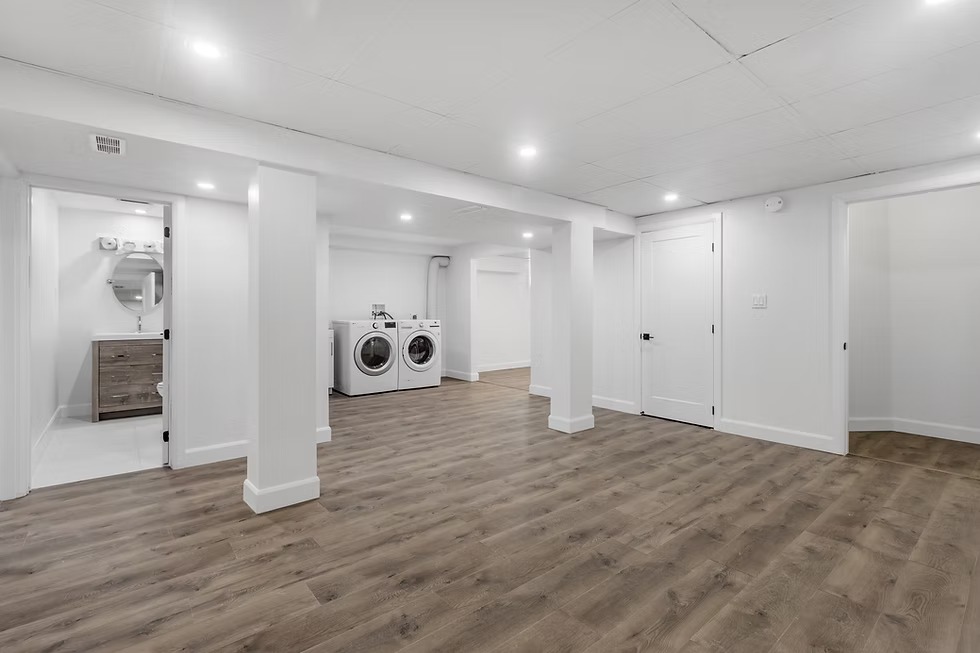Blog
Should You Attend Your Home Inspection?

Attending your home inspection can be a beneficial experience, but whether or not you should attend depends on a few factors. Here’s a breakdown of the pros and cons of attending your home inspection, along with tips on what to expect if you decide to go:
Pros of Attending Your Home Inspection
Gaining First-Hand Knowledge
- Understanding the Issues: Being present at the inspection allows you to see potential problems firsthand. You’ll get a clear idea of how serious or costly issues are, which might be more difficult to understand through a report alone.
- Immediate Clarifications: You can ask the inspector questions on the spot about anything you’re unsure about, whether it’s the severity of a problem or how it could affect the home’s value or your living situation.
- Learn About Home Maintenance: The inspector often shares useful tips about routine home maintenance and ways to avoid future problems. For example, they might suggest better ways to maintain HVAC systems or how to spot leaks early.
- Avoiding Surprises: Sometimes sellers may not be upfront about certain issues. By attending, you can be aware of these problems before receiving the final inspection report, which may help you in negotiations with the seller.
Better Negotiation Power
- Informed Decisions: Knowing the issues in detail gives you the upper hand during negotiations. You can use the inspection findings to ask the seller for repairs, a price reduction, or a credit at closing.
- Clarifying Concerns: If the inspector identifies significant issues, being there allows you to immediately ask for more context or an explanation, helping you make a more informed decision about whether to proceed with the purchase or not.
Building Trust with the Inspector
- Professional Insight: Inspectors may be able to explain complex issues in simple terms when you’re there to ask questions, making the report clearer when it arrives.
- Better Rapport: Establishing rapport with the inspector can also lead to a more thorough inspection, as they might feel more comfortable providing detailed feedback in person. Plus, they might give you tips that go beyond the typical report.
Cons of Attending Your Home Inspection
Overwhelming Amount of Information
- Information Overload: Home inspections can be detailed and lengthy, often covering aspects of the home that you might not be familiar with, like plumbing, electrical systems, or insulation. If you don’t have a background in construction, some of the terminology and issues can be overwhelming.
- Emotional Reaction: Sometimes, seeing the issues in person (especially major ones like foundation cracks or roof damage) can be emotional or stressful. It might be hard to separate your emotional reaction to the issues from logical decision-making.
- Inspector’s Focus: While it’s helpful to ask questions, it can sometimes be distracting for the inspector if you’re overly involved. Some inspectors prefer not to have clients hovering over them during the entire process.
Disruption of the Process
- Time and Logistics: Home inspections usually take several hours. Depending on your schedule, it may not be feasible to attend for the entire inspection.
- Inspectors May Be Less Focused: Some inspectors prefer to work without the buyer present so they can focus on the inspection and avoid being interrupted. They may feel that answering too many questions in real-time could slow down the process.
Too Many Opinions
- Potential Confusion: If you attend with others (like family or friends), conflicting opinions may arise. One person may get concerned about something minor, while the inspector may downplay it. This can create unnecessary anxiety or confusion.
Tips If You Decide to Attend the Home Inspection
Arrive On Time
- Plan to arrive toward the end of the inspection rather than at the beginning. This way, the inspector can go through the main areas first without being interrupted and then address any concerns or questions you have at the end.
Ask Focused Questions
- Don’t overwhelm the inspector with too many questions at once. Focus on understanding major issues, such as the age of important systems (like the roof, HVAC, or plumbing), the severity of any potential repairs, and the estimated costs of fixing problems.
Take Notes
- Bring a notepad or your phone to take notes. The inspector’s report will provide a detailed account of findings, but jotting down immediate impressions and thoughts can help you remember key points.
Don’t Expect Immediate Answers on Repairs
- Remember that the inspector is not there to give repair estimates or contractor referrals. Their job is to identify problems, not necessarily provide a full solution. For a more accurate understanding of repair costs, you’ll need to consult professionals later.
Stay Open to What You Learn
- It’s easy to get overwhelmed by the details, especially if there are issues you weren’t expecting. Keep an open mind, knowing that the goal of the inspection is to help you make an informed decision. Issues uncovered during the inspection are common in almost every home, but it’s important to know what is fixable and what may need further attention.
Conclusion: Should You Attend?
It can be highly beneficial to attend your home inspection to get a clear understanding of the property’s condition, gain direct insights from the inspector, and be able to ask questions on the spot. However, if you’re concerned about being overwhelmed or distracted, or if you’re unsure how to interpret the inspector’s findings, it might be best to skip the inspection and rely on the detailed report afterward. Either way, the most important thing is that you feel informed and confident in your decision, whether that comes from attending the inspection or reviewing the report after the fact.
